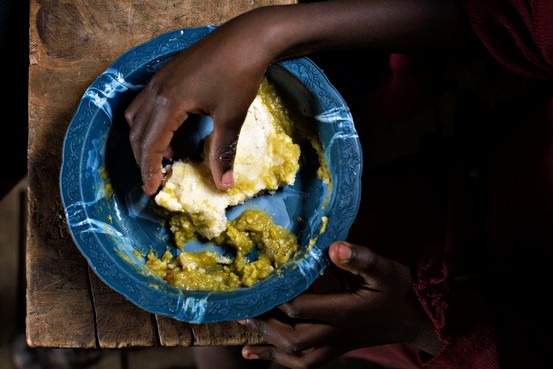How can rich countries best help poor ones? Matt Ridley identifies five priorities
Goal: Reduce malnutrition. When children get better food, they develop their brains and stay in school longer. Reuters
In September next year, the United Nations plans to choose a list of development goals for the world to meet by the year 2030. What aspirations should it set for this global campaign to improve the lot of the poor, and how should it choose them?
In answering that question, U.N. Secretary-General Ban Ki-moon and his advisers are confronted with a task that they often avoid: setting priorities. It is no good saying that we would like peace and prosperity to reach every corner of the world. And it is no good listing hundreds of targets. Money for foreign aid, though munificent, is limited. What are the things that matter most, and what would be nice to achieve but matter less?
The origin of this quest for global priorities goes back to 2000, when Mr. Ban’s predecessor, Kofi Annan, picked a set of “Millennium Development Goals,” eight challenges to be met by 2015, which were adopted by world leaders. Although some of these goals were woolly, the very brevity of the list and the deadline itself meant that they really did catch the world’s imagination and force the aid industry to be more selective.
Most of the original Millennium Development Goals will have been met or nearly so by 2015. Since 2000, for example, the number of people living in extreme poverty and hunger around the world will have been cut in half—an astonishing achievement. Other goals included universal primary education, gender equality, reductions in child mortality, improvements in maternal health, progress against HIV and malaria, environmental sustainability and (most vaguely) a “global partnership for development.”
The lesson, surely, from this first round of setting development goals is the need to be even more ruthlessly selective next time. A list of eight goals is too long for most outsiders to remember. When I asked several of my colleagues in the British Parliament, they remembered only three to five. Several development experts I spoke to say that the new list should have just five discrete, quantitative, achievable goals.
Only Mr. Ban can make that happen, says Charles Kenny, a senior fellow at the Center for Global Development in Washington, D.C., who observes that you should “never ask a committee to write poetry.” Mr. Kenny told me: “There is one person who can bring the poetry. The U.N. secretary-general has to edit down with an ax, not a scalpel. Without strong intervention from Ban Ki-moon, there is extremely limited prospect for simplification.”










